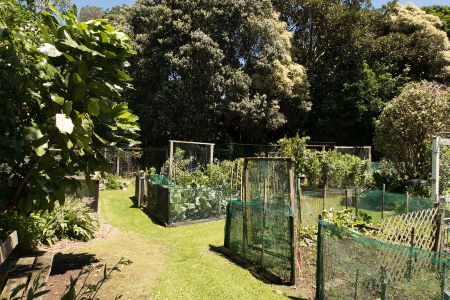In the mid 1980s the Board of Trustees met each month at Parklands Social Centre and the matron always attended. As the Trust grew, it became apparent that meetings should be more businesslike. A subcommittee of the Board also set about examining existing management structures, including channels of communication and examining what could be done to not only maximise valuable aspects of the existing organisation, but also to look at alternatives that would benefit both residents and staff. Questionnaires were issued to all Board and Residents’ Committee members and the Trust’s solicitor and a number of staff members were interviewed.
Board members Ashley Weston and Chris Lee prepared a report recommending changes, which included taking the issues of management away from voluntary Board trustees and putting them into the hands of paid staff. Up until that time Fred Bath, a retired Army Officer, had been a part time manager, acting as a salesman, from his one man office at the entrance to Woodlands. Messrs Lee and Weston proposed a full time chief executive, so in 1988 a professional management firm advertised the position. In February 1989, the search committee recommended to a Trust Board meeting the appointment of Ryan Costello, a 39 year old American who with his wife and 9 year old daughter had recently come to New Zealand to settle. Commencing in March 1989, Ryan was a great enthusiast for Parkwood and proved to be an excellent salesman, marketing the 25 empty houses and unsold hospital apartments.
When Ryan resigned in 1994, it was clear Parkwood had grown to a level that required accounting, administrative and management expertise, and in May 1994 New Zealander Mark Rouse was appointed as the second General Manager. Mark was a qualified chartered accountant who had previously been employed in a managerial capacity with Telecom. Personal and professional documents supporting his application were outstanding.
As building of houses on a planned basis drew to a close and it appeared there was little land considered suitable available for purchase, other matters occupied the attention of the Board and residents. The recently appointed general manager became rapidly immersed in many aspects of village management. That he was a chartered accountant was an enormous advantage as the Trust sought to reduce debt whilst seeking to maintain the high standards of social management that had been the hallmark of Parkwood Village since its inception.

One matter that required urgent consideration, however, was the impact of a drought on the gardens. The Chairman considered the Trust should not rely on the Kapiti District Council supply, and preliminary investigations into a private bore supply were undertaken. Water rights were applied for as summer progressed and the water supply diminished. The first of two bores was drilled and eventually water was also piped to Parklands with standpipes installed at strategic places providing access to water for personal gardens outside normal working hours.
For the remainder of that summer, and subsequently, Parkwood gardens have flourished and been enjoyed not only by residents, but by the public generally who walk its pathways. On a summer’s weekend in 2004 when a garden walk for charity was organised by a fundraising group, 1000 people were reported to have walked through the gardens.
This section has been adapted from A Place called Parkwood, by Margaret Lythgoe, a history of Parkwood published in 2007.
